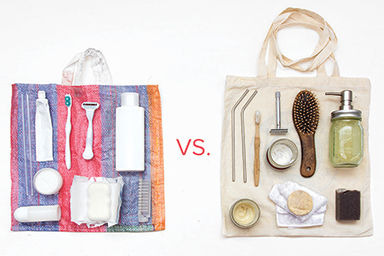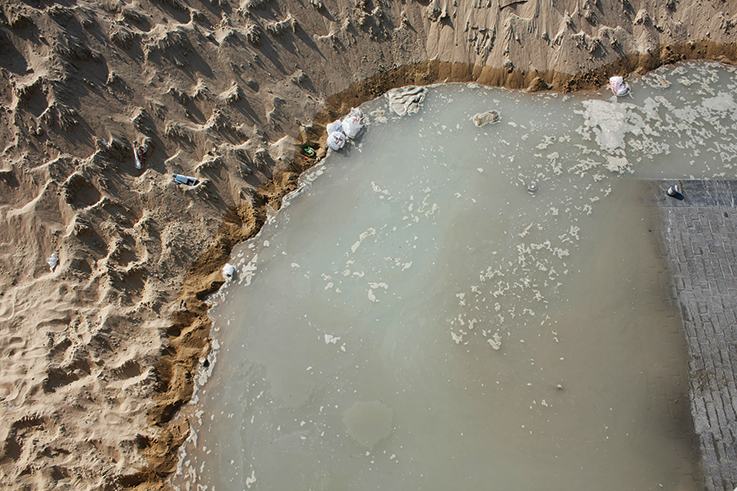By: Victoria Chiriboga
* For more information visit Upcyclemind.com
Travelling is the perfect opportunity for tourists to submerge themselves in foreign cultures, and uniquely connect with the place they are visiting. Every experience emits a new sensation that allows travellers to take a piece of each place within them that remains forever.
Tourism its self sustains economies and promotes conservation of natural areas, and even more in a country like Ecuador, where natural beauty and history invite people from around the world. However, tourism has repercussions that show a darker side to the industry.
It’s not very often that we stop and think about what are the effects that our travels can have on a determined site. What do we end up leaving behind? This reflection is extremely important. What is the impact that we want to create? The answers lie in our hands, and on the ability that we have to assimilate the basic and simple teachings that the zero-waste lifestyle proposes.
Zero-Waste Tourism
Being responsible and conscious tourists goes hand in hand with being aware of the impact that we are capable of causing. While it is true that eco-tourism has helped create a greater understanding on the importance of the subject, there is always more we can do. Go a step further!
This new concept is revolutionizing how environmental-tourism is operating now. Zero-waste is the brand new movement within environmental activism where everyone, at a personal level, is able to become an activist. This is accomplished simply by cutting our consumption of plastics and disposable products while we travel, therefore reducing the amount of trash and waste that we leave behind.
The main idea behind this movement is to create a low environmental impact, travel style. Accomplishing this by rationalizing our human vision, and re-directing it to focus on one of humanities greatest (current) issues: the excess of trash and waste that we produce.
Zero-waste seeks to be an expression of simplicity and minimalism on our daily life. As a result of adopting this lifestyle we provoke a chain reaction of positive impact, and a change of consciousness on the type of lifestyles that we lead. It helps create realizations on what is the impact of how we consume and the reach of the consequences that these patterns can have. Immediate change is necessary to be able to revert and prevent further damage on our natural environment.
In order to materialize the concept, the first step is to learn. Especially learn how to connect more with what we throw out. Not knowing how much waste we produce or where it all ends up is a huge mistake that creates massive negative implications on our ecosystems. In order to understand how we can reduce our waste, which will also minimize our environmental impact, we need to become acquainted with our trash and recognize that we are responsible for taking the necessary actions that will help us reduce it. From there, we can determine what are the best alternatives that will permanently shrink our impact.
Within the zero-waste movement instead of simply encouraging recycling, it promotes cultivating the habit of reducing. Upcyclemind.com, a blog dedicated to promoting this lifestyle, explains in a simple and direct manner how we can live a sustainable life that also generates less waste. Tourists have to consider that the important thing is not just to preserve their own territory, but instead have a global perspective and help preserve the world while they go from country to country.
The five pillars on which zero-waste works are: reject, reduce, reuse, decompose and recycle. It is important to apply these in the order presented, because they are listed in order of significance and level of priority in order to achieve the desired objective of transforming into zero-waste individuals and communities.
It all begins with making the necessary adjustments to change our lives, and that way change the way we travel. If we are conscious people, we will be conscious travellers, and be able to truly accomplish a: low footprint tourism. Each journey is an opportunity to, consciously, achieve positive environmental impacts through the pleasure of exploring new places.
Tourism puts a great amount of pressure over our natural ecosystems. In the majority of cases, the ecosystems suffer through social and ecological changes in order to satisfy the needs of visitors, whether this is to satisfy transportation, food, or water needs.
What to do to avoid affecting further our incredible natural environment? Whatever the destiny is, be it the mountains, the beach or a lake; a rafting adventure or a walk through the jungle; it is essential that we bring back with us the trash that we have generated. The reason is simple: cities have the ability and necessary infrastructure to process waste, while remote locations can’t usually provide this service. By taking our by-product back with us, we avoid the infiltration of these objects in our rivers, oceans and jungles.
Another step in the right direction is to take in consideration what the products that we use are wrapped in. Plastic is designed to last forever, it is impossible for soil to decompose it, which means it can live far longer that we will stuck in our water ways and on our grounds. It poses serious and irreversible risks for the balance and resilience of our ecosystems. Unfortunately, the majority of the packaging that our food comes in is made out of plastic, or has some kind of plastic cover. With the passing of time the chemicals used to process these plastic wrappers pass through natural filters until they integrate themselves into our food chain, creating irreversible damage.
A smart wanderer avoids taking with them any type of packaged food or snack on their adventures. Mainly because they are conscious of the effect that this has on fragile ecosystems, but also because one of their objectives while travelling is to try the local, organic, fresh food to complete the full experience of the place.
Keeping the environment intact and un-altered of the places we visit depends entirely on being conscious of our actions and the effect these will imply. In the end, the natural beauty and uniqueness is the reason why we visit, and we have the responsibility of letting other generations enjoy the experience the same way we did.
ZERO-WASTE TRAVEL TIPS
- Reject single-use products with non-degradable materials such as plastic
- Reduce the amount of stuff you consume, buy only what is necessary
- Reusing what we already have extends the life and utility of materials
- Recycle only what you can reject, reduce or decompose
- Organic waste can return to the soil to make it richer






